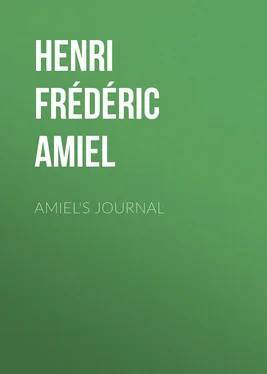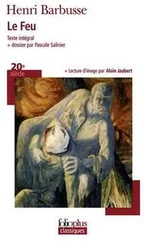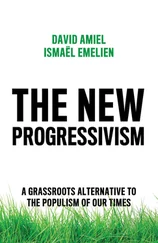Henri Frédéric Amiel - Amiel's Journal
Здесь есть возможность читать онлайн «Henri Frédéric Amiel - Amiel's Journal» — ознакомительный отрывок электронной книги совершенно бесплатно, а после прочтения отрывка купить полную версию. В некоторых случаях можно слушать аудио, скачать через торрент в формате fb2 и присутствует краткое содержание. Издательство: Иностранный паблик, Жанр: literature_19, foreign_antique, foreign_prose, Зарубежные любовные романы, на английском языке. Описание произведения, (предисловие) а так же отзывы посетителей доступны на портале библиотеки ЛибКат.
- Название:Amiel's Journal
- Автор:
- Издательство:Иностранный паблик
- Жанр:
- Год:неизвестен
- ISBN:нет данных
- Рейтинг книги:5 / 5. Голосов: 1
-
Избранное:Добавить в избранное
- Отзывы:
-
Ваша оценка:
- 100
- 1
- 2
- 3
- 4
- 5
Amiel's Journal: краткое содержание, описание и аннотация
Предлагаем к чтению аннотацию, описание, краткое содержание или предисловие (зависит от того, что написал сам автор книги «Amiel's Journal»). Если вы не нашли необходимую информацию о книге — напишите в комментариях, мы постараемся отыскать её.
Amiel's Journal — читать онлайн ознакомительный отрывок
Ниже представлен текст книги, разбитый по страницам. Система сохранения места последней прочитанной страницы, позволяет с удобством читать онлайн бесплатно книгу «Amiel's Journal», без необходимости каждый раз заново искать на чём Вы остановились. Поставьте закладку, и сможете в любой момент перейти на страницу, на которой закончили чтение.
Интервал:
Закладка:
In his poems, or at any rate in the earlier ones, this lighter side finds more expression, proportionally, than in the Journal. In the volume called “Grains de Mil,” published in 1854, and containing verse written between the ages of eighteen and thirty, there are poems addressed, now to his sister, now to old Genevese friends, and now to famous men of other countries whom he had seen and made friends with in passing, which, read side by side with the “Journal Intime,” bring a certain gleam and sparkle into an otherwise somber picture. Amiel was never a master of poetical form; his verse, compared to his prose, is tame and fettered; it never reaches the glow and splendor of expression which mark the finest passages of the Journal. It has ability, thought—beauty even, of a certain kind, but no plastic power, none of the incommunicable magic which a George Eliot seeks for in vain, while it comes unasked, to deck with imperishable charm the commonplace metaphysic and the simpler emotions of a Tennyson or a Burns. Still as Amiel’s work, his poetry has an interest for those who are interested in him. Sincerity is written in every line of it. Most of the thoughts and experiences with which one grows familiar in the Journal are repeated in it; the same joys, the same aspirations, the same sorrows are visible throughout it, so that in reading it one is more and more impressed with the force and reality of the inner life which has left behind it so definite an image of itself. And every now and then the poems add a detail, a new impression, which seems by contrast to give fresh value to the fine-spun speculations, the lofty despairs, of the Journal. Take these verses, written at twenty-one, to his younger sister:
“Treize ans! et sur ton front aucun baiser de mère
Ne viendra, pauvre enfant, invoquer le bonheur;
Treize ans! et dans ce jour mil regard de ton père
Ne fera d’allégresse épanouir ton coeur.
“Orpheline, c’est là le nom dont tu t’appelles,
Oiseau né dans un nid que la foudre a brisé;
De la couvée, hélas! seuls, trois petits, sans ailes
Furent lancés au vent, loin du reste écrasé.
“Et, semés par l’éclair sur les monts, dans les plaines,
Un même toit encor n’a pu les abriter,
Et du foyer natal, malgré leurs plaintes vaines
Dieu, peut-être longtemps, voudra les écarter.
“Pourtant console-toi! pense, dans tes alarmes,
Qu’un double bien te reste, espoir et souvenir;
Une main dans le ciel pour essuyer tes larmes;
Une main ici-bas, enfant, pour te bénir.”
The last stanza is especially poor, and in none of them is there much poetical promise. But the pathetic image of a forlorn and orphaned childhood, “ un nid que la foudre a brisé ,” which it calls up, and the tone of brotherly affection, linger in one’s memory. And through much of the volume of 1863, in the verses to “My Godson,” or in the charming poem to Loulou, the little girl who at five years old, daisy in hand, had sworn him eternal friendship over Gretchen’s game of “ Er liebt mich—liebt mich nicht ,” one hears the same tender note.
“Merci, prophétique fleurette,
Corolle à l’oracle vainqueur,
Car voilà trois ans, paquerette,
Que tu m’ouvris un petit coeur.
“Et depuis trois hivers, ma belle,
L’enfant aux grands yeux de velours
Maintient son petit coeur fidèle,
Fidèle comme aux premiers jours.”
His last poetical volume, “Jour à Jour,” published in 1880, is far more uniformly melancholy and didactic in tone than the two earlier collections from which we have been quoting. But though the dominant note is one of pain and austerity, of philosophy touched with emotion, and the general tone more purely introspective, there are many traces in it of the younger Amiel, dear, for very ordinary human reasons, to his sisters and his friends. And, in general, the pathetic interest of the book for all whose sympathy answers to what George Sand calls “ les tragédies que la pensée aperçoit et que l’oeil ne voit point ” is very great. Amiel published it a year before his death, and the struggle with failing power which the Journal reveals to us in its saddest and most intimate reality, is here expressed in more reserved and measured form. Faith, doubt, submission, tenderness of feeling, infinite aspiration, moral passion, that straining hope of something beyond, which is the life of the religious soul—they are all here, and the Dernier Mot with which the sad little volume ends is poor Amiel’s epitaph on himself, his conscious farewell to that more public aspect of his life in which he had suffered much and achieved comparatively so little.
“Nous avons à plaisir compliqué le bonheur,
Et par un idéal frivole et suborneur
Attaché nos coeurs à la terre;
Dupes des faux dehors tenus pour l’important,
Mille choses pour nous ont du prix … et pourtant
Une seule était nécessaire.
“Sans fin nous prodiguons calculs, efforts, travaux;
Cependant, au milieu des succès, des bravos
En nous quelque chose soupire;
Multipliant nos pas et nos soins de fourmis,
Nous vondrions nous faire une foule d’amis....
Pourtant un seul pouvait suffire.
“Victime des désirs, esclave des regrets,
L’homme s’agite, et s’use, et vieillit sans progrès
Sur sa toile de Pénélope;
Comme un sage mourant, puissions-nous dire en paix
J’ai trop longtemps erré, cherché; je me trompais;
Tout est bien, mon Dieu m’enveloppe.”
Upon the small remains of Amiel’s prose outside the Journal there is no occasion to dwell. The two essays on Madame de Staël and Rousseau contain much fine critical remark, and might find a place perhaps as an appendix to some future edition of the Journal; and some of the “Pensées,” published in the latter half of the volume containing the “Grains de Mils,” are worthy of preservation. But in general, whatever he himself published was inferior to what might justly have been expected of him, and no one was more conscious of the fact than himself.
The story of his fatal illness, of the weary struggle for health which filled the last seven years of his life, is abundantly told in the Journal—we must not repeat it here. He had never been a strong man, and at fifty-three he received, at his doctor’s hands, his arrêt de mort . We are told that what killed him was “heart disease, complicated by disease of the larynx,” and that he suffered “much and long.” He was buried in the cemetery of Clarens, not far from his great contemporary Alexander Vinet; and the affection of a sculptor friend provided the monument which now marks his resting-place.
We have thus exhausted all the biographical material which is at present available for the description of Amiel’s life and relations toward the outside world. It is to be hoped that the friends to whom the charge of his memory has been specially committed may see their way in the future, if not to a formal biography, which is very likely better left unattempted, at least to a volume of Letters, which would complete the “Journal Intime,” as Joubert’s “Correspondence” completes the “Pensées.” There must be ample material for it; and Amiel’s letters would probably supply us with more of that literary and critical reflection which his mind produced so freely and so well, as long as there was no question of publication, but which is at present somewhat overweighted in the “Journal Intime.”
But whether biography or correspondence is ever forthcoming or not, the Journal remains—and the Journal is the important matter. We shall read the Letters if they appear, as we now read the Poems, for the Journal’s sake. The man himself, as poet, teacher, and littérateur , produced no appreciable effect on his generation; but the posthumous record of his inner life has stirred the hearts of readers all over Europe, and won him a niche in the House of Fame. What are the reasons for this striking transformation of a man’s position—a transformation which, as M. Scherer says, will rank among the curiosities of literary history? In other words, what has given the “Journal Intime” its sudden and unexpected success?
Читать дальшеИнтервал:
Закладка:
Похожие книги на «Amiel's Journal»
Представляем Вашему вниманию похожие книги на «Amiel's Journal» списком для выбора. Мы отобрали схожую по названию и смыслу литературу в надежде предоставить читателям больше вариантов отыскать новые, интересные, ещё непрочитанные произведения.
Обсуждение, отзывы о книге «Amiel's Journal» и просто собственные мнения читателей. Оставьте ваши комментарии, напишите, что Вы думаете о произведении, его смысле или главных героях. Укажите что конкретно понравилось, а что нет, и почему Вы так считаете.












